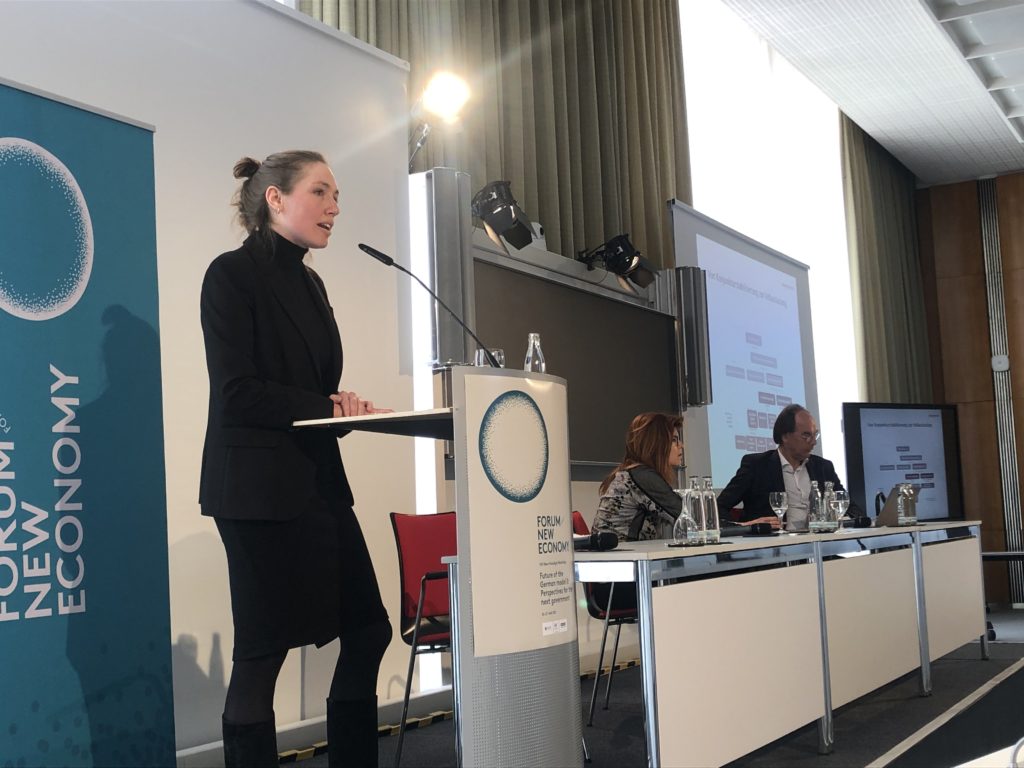Article overview
Forum Newsletter #45 – Wrap-up from the New Economy
Economy beyond lobby clichés - Millionaires in favor of wealth taxes - New Forum Papers - Symposium on August 31
How German companies feel about key election issues - A mood survey
How do German companies view key campaign issues such as industrial and climate policy shortly before the election? Deutsche Bank surveyed 200 companies on this issue - with surprisingly heterogeneous results.
Climate policy and the modern state: A hydrogen package for Germany
Green hydrogen is considered an essential component for the climate transition. A new study by Tom Krebs develops a modern hydrogen strategy for Germany.
The Forum in the media – green investments, debt brake and income inequality
The 2021 federal election is approaching - and with it the question what the future of the German model may look like. The VIII New Paradigm Workshop provided food for thought and an outline of possible answers, which SZ, Spiegel and co picked up on. An overview.
On climate, jobs and financial stability: Towards a new mandate for central banks?
Whether the ECB needs a new mandate was discussed on the VIII. New Paradigm Workshop by Isabel Schnabel, Adam Tooze, Moritz Schularick, and Laurence Tubiana.
Towards new fiscal rules for the euro zone?
Prominent French economists around Macron have written a reform proposal for the European Stability and Growth Pact and have discussed it at the VIII. New Paradigm Workshop.
Climate Challenge: Will Germany manage the transition?
The main question of the climate session on the VIII. New Paradigm Workshop was, how Germany can manage the transition to climate-neutrality by 2050 - or 2045.
Beyond the debt brake – Towards a more flexible German fiscal policy?
At the moment, there is much debate about the German debt brake. At the VIII. New Paradigm Workshop, Philippa Sigl-Glöckner and others discussed a proposal for a reform commissioned by the Forum New Economy.
The roaring globalization of the 2020s? Harold James says a new golden age of globalization is approaching
Princeton professor Harold James explains why the current crisis, like past crises, could trigger a new push for globalisation - on 26 May at our VIII New Paradigm Workshop.
Inequality in Germany – How to reverse the trend
Is there only a perceived divergence of income and wealth in Germany? The factual situation and the assessment of concrete policy measures at the VIII. New Paradigm Workshop.
The tax policy whisperers behind Joe Biden
In their book on the "Triumph of Injustice", Emmanuel Saez and Gabriel Zucman have mapped out much of what the new US president is now trying to correct in terms of tax policy. A book prize appreciation.
World Summit for A Systemic Recovery from the Pandemic
What a selection of the world's most renowned economists recommends - short report from an impressive NAEC conference.
World Summit for A Systemic Recovery from the Pandemic
What a selection of the world's most renowned economists recommends - short report from an impressive NAEC conference.










